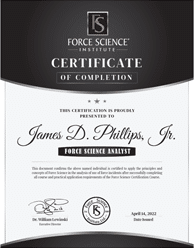Stand Your Ground in Florida

In 2005 Florida created the nation’s first “Stand your Ground Law.” The 2005 version of Florida’s Stand Your Ground Statute, which was found in §776.013(3) read: “A person who is not engaged in an unlawful activity and who is attacked in any other place where he or she has a right to be has no duty to retreat and has the right to stand his or her ground and meet force with force, including deadly force if he or she reasonably believes it is necessary to do so to prevent death or great bodily harm to himself or herself or another or to prevent the commission of a forcible felony.”
The requirements of the statute were threefold:
- You cannot be engaged in unlawful activity;
- You have to be attacked in a place where you have a right to be; and
- You reasonably believe that the non-deadly force you use is necessary to defend yourself from the other’s imminent use of force
OR
- You have to reasonably believe deadly force is necessary either:
- to prevent imminent death or great bodily harm to yourself or another, or
- to prevent the commission of a forcible felony.
If all three of these conditions (both of the first two and either of the last two depending on whether you use force or deadly force) were satisfied, then under the 2005 version of the Florida “Stand Your Ground” law you had no duty to retreat, and were able to meet force with force, including deadly force. If you did not meet all of these requirements, you would not qualify for this protection.
In 2014 Florida strengthened it’s “Stand Your Ground Law.” To do so, the legislature altered Florida Statute 776.013(3) to read: “A person who is attacked in his or her dwelling, residence, or vehicle has no duty to retreat and has the right to stand his or her ground and use or threaten to use force, including deadly force, if he or she uses or threatens to use force in accordance with § 776.012(1) or (2)or § 776.031(1) or (2).” Florida Statutes §776.012 (1), and (2) read:
- You reasonably believe that the non-deadly force you use is necessary to defend yourself or another from the other’s imminent use of unlawful force.
- the other’s use of force against you must be unlawful.
When using deadly force, the requirements are virtually the same as they were under the 2005 version of the law, except that if you are using deadly force to prevent the commission of a forcible felony, there is now a requirement that the forcible felony be imminent:
- You cannot be engaged in unlawful activity;
- You have to be attacked in a place where you have a right to be; and
- You have to reasonably believe deadly force is necessary either:
- to prevent imminent death or great bodily harm to yourself or another, or
- to prevent the imminent commission of a forcible felony.
More results...
Get in touch

"*" indicates required fields
Copyright © 2022-2025 The Firearm Firm All rights reserved.

















